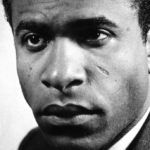An appreciation of the Czech Marxist Humanist Karel Kosik’s Dialectics of the Concrete, 40 years later – Editors
Karel Kosík was a trail-blazing philosopher, whose DIALECTICS OF THE CONCRETE, first published in 1963, still represents a remarkable and refreshing work of dialectical philosophy. In breaking from the mechanical materialism of 20th century “Marxism,” which reduced ideas to a mere mirror-reflection of social reality, Kosík showed that Marx’s work is above all concerned with the TRANSFORMATION of reality through critical, revolutionary, PHILOSOPHIC praxis.
As against the claim that “philosophy ‘as such’ has come to an end,” he wrote: “It is not true that philosophy is merely an alienated expression of alienated conditions and that this description exhausts its character and mission. Only particular historical instances of philosophy might amount to false consciousness in the absolute sense, but from the perspective of philosophy in the real sense of the word, these would not amount to philosophy. They would be mere systematizations and doctrinaire interpretations of biases and opinions of the time, that is, ideologies” (DIALECTICS OF THE CONCRETE, p. 102).
Philosophy springs from the passion to know the meaning of things in a world where appearance and reality fail to coincide. Dialectical philosophy, Kosík held, is the highest expression of the effort to know the “thing itself,” the fundamental truths of human reality. So long as we live in an alienated, bifurcated world, he insisted, philosophy will remain the “indispensable and irreplaceable” activity of humanity.
Though Kosík was an academic philosopher, he never viewed philosophy as the privileged activity of a few people. He became a leading activist in the Prague Spring of 1968–the effort to create “socialism with a human face” in Czechoslovakia. In the brief period of “thaw” preceding the Russian invasion, he joined the Central Committee of the Communist Party and became the philosophic spokesperson for the struggle for new kind of socialism freed from bureaucracy and authoritarianism. His speeches during the Prague Spring–often given before thousands of workers and students–explicitly discussed philosophic issues, such as: What is being? What is time? What KIND of society can liberate the individual?
The Russian intervention put this free-thinking to an end. Kosík was expelled from the party and prevented from teaching or publishing. For more than 20 years he became a non-person, forced to support himself by translating works that were issued under other people’s names.
In 1992, several years after the Berlin Wall came down, I visited Kosík in Prague. By then he had obtained his old job back at Charles University. Though he had opposed Stalinism at great cost to his personal well-being, he was virtually ignored in 1989, viewed as a product of a bygone era. But it was his critics, not himself, who were living in darkness.
Kosík told me, “In 1968 I raised as a philosophic question ‘what is socialism.’ It had become imperative to rethink socialism from the bottom up in light of the Stalinist experience. Today I am asking as a philosophic question ‘what is democracy.’ The leaders of the ‘new’ Czechoslovakia have as narrow a concept of democracy as the old rulers had of ‘socialism.’”
Kosík’s independence of mind had its price. Not long afterwards he was fired from Charles University by the “new” administrators (some of whom were former Communist hacks who had transformed themselves into champions of “free market” capitalism). The excuse given was a lack of university funding, but he, like his critics, know that that was mere pretense.
Kosík spoke much as his wrote–with biting clarity and succinctness. DIALECTICS OF THE CONCRETE could easily have been a 1,000 page book; in fact, it is barely 150 pages long. Not a wasted word, not an indirect expression. Philosophy, like truth, aims to know “the thing itself.” And though knowledge of the “thing itself” involves a “detour,” a philosophic journey, it is has to be carried out with great precision and rigor.
The most memorable moment of our visit was when he asked to see a photograph of Raya Dunayevskaya. He then told me that he had first heard of her work in the 1940s, when he read an essay of hers in a French Marxist journal. Though they failed to establish direct contact, he was very interested in her work and peppered me with questions about her development of Marxist-Humanism. He later helped get a publisher for the Slovakian edition of her PHILOSOPHY AND REVOLUTION–no small matter, since by then “Marxism” had become so discredited in East Europe that it was hard to get any hearing of an independent Marxian voice.
The collapse of Marxism in 1989–not so much the regimes that called themselves “Marxist,” which was a welcome development, but the collapse of any discussion of Marx’s work which accompanied it–pulled on Kosík as well. Though in private he continued to champion Marx for “delineating the domination of the human by the inhuman,” he did not return to further develop the explicitly Marxian philosophic themes that characterized his DIALECTICS OF THE CONCRETE.
This may have impacted his view of the political situation. By the late-1990s, horrifed at the NATO intervention in Kosova, he reverted to a one-sided condemnation of U.S. actions by attacking the U.S. without taking a stand against Milosevic’s genocidal policies. Though Kosík had asked penetrating questions about the meaning of socialism and democracy, he no longer seemed to do so when it came to “anti-imperialism.”
In this sense, the life of Karel Kosík reflects the tragedy of our times as much as its heroism. Nothing, however, can take away from that “magical moment” in Prague 1968 when he made a serious effort to bring together dialectical philosophy with political activism.
Originally appeared in News & Letters, October 2004





0 Comments